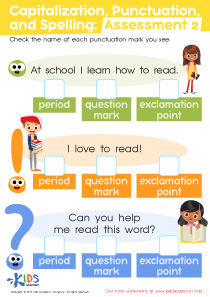Vocabulary enhancement Easy Writing Worksheets for Ages 3-4
4 filtered results
-
From - To
Boost your child's vocabulary with our engaging Vocabulary Enhancement Easy Writing Worksheets designed specifically for ages 3-4! These colorful and interactive worksheets make learning fun and enjoyable, helping young learners expand their word knowledge. Through playful activities, such as matching, tracing, and filling in the blanks, children will develop essential skills in a creative and supportive environment. Our expertly crafted exercises align with early literacy standards, ensuring that each worksheet is not only entertaining but also educational. Foster a love for words and writing early on, setting the foundation for future learning success! Download our free worksheets today and watch your child's language skills grow!
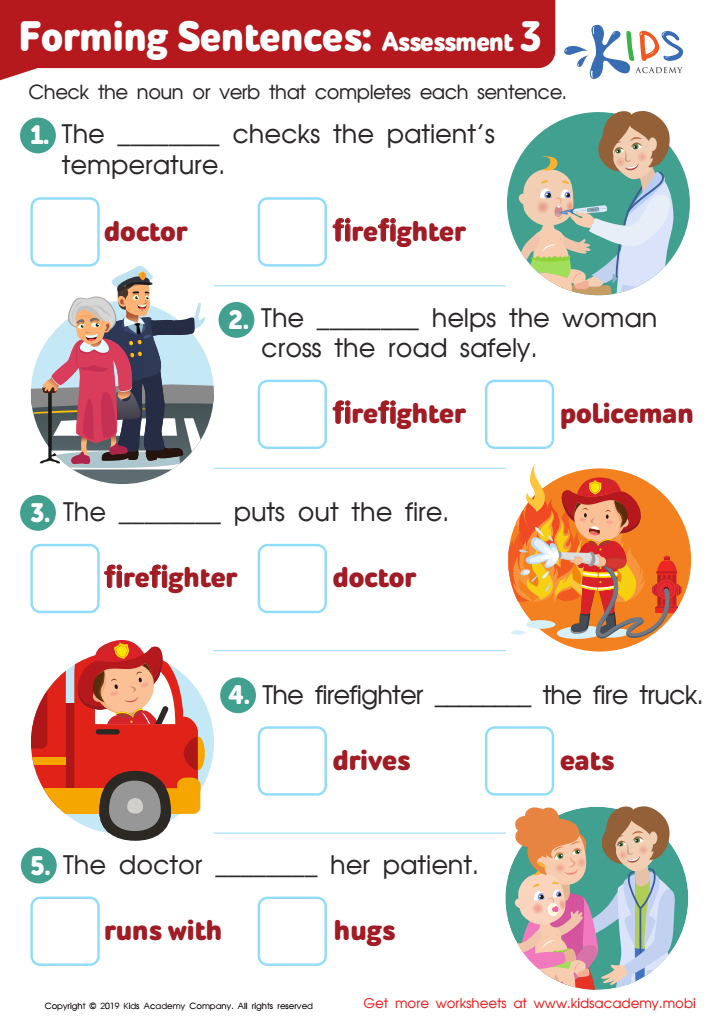

Forming Sentences: Assessment 3 Worksheet
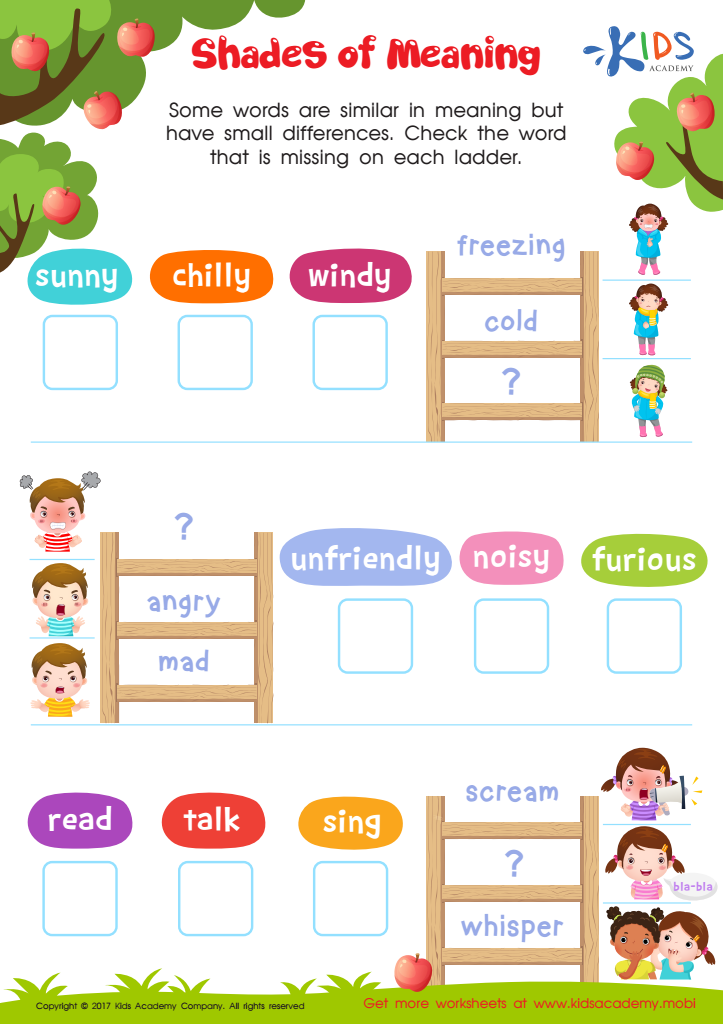

Shades of Meaning Worksheet
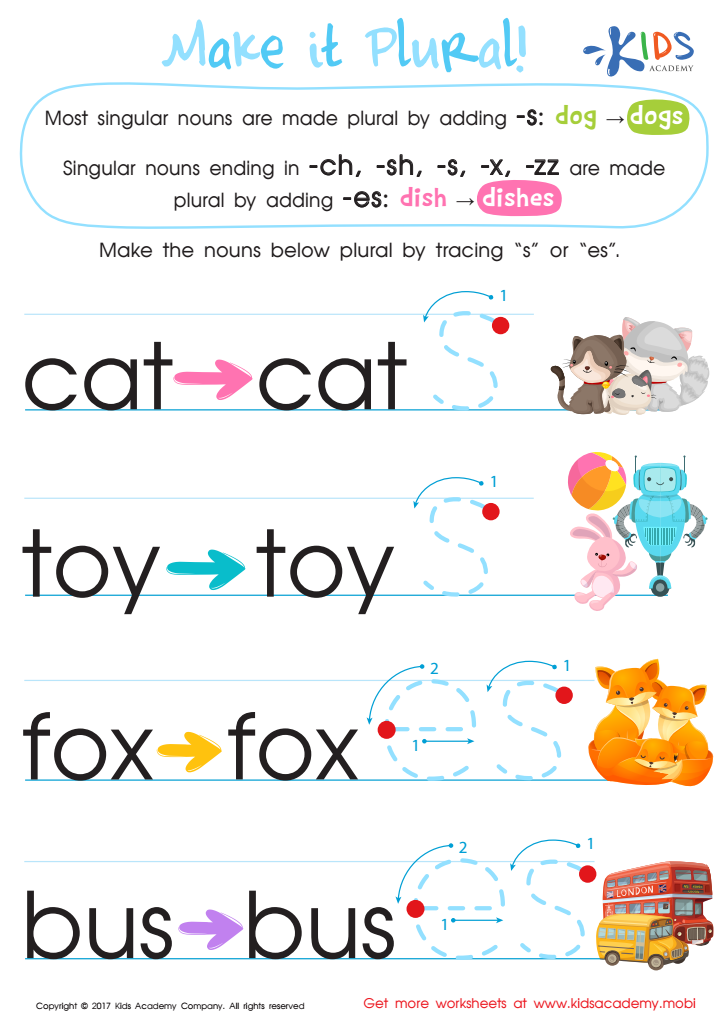

Make it Plural Worksheet
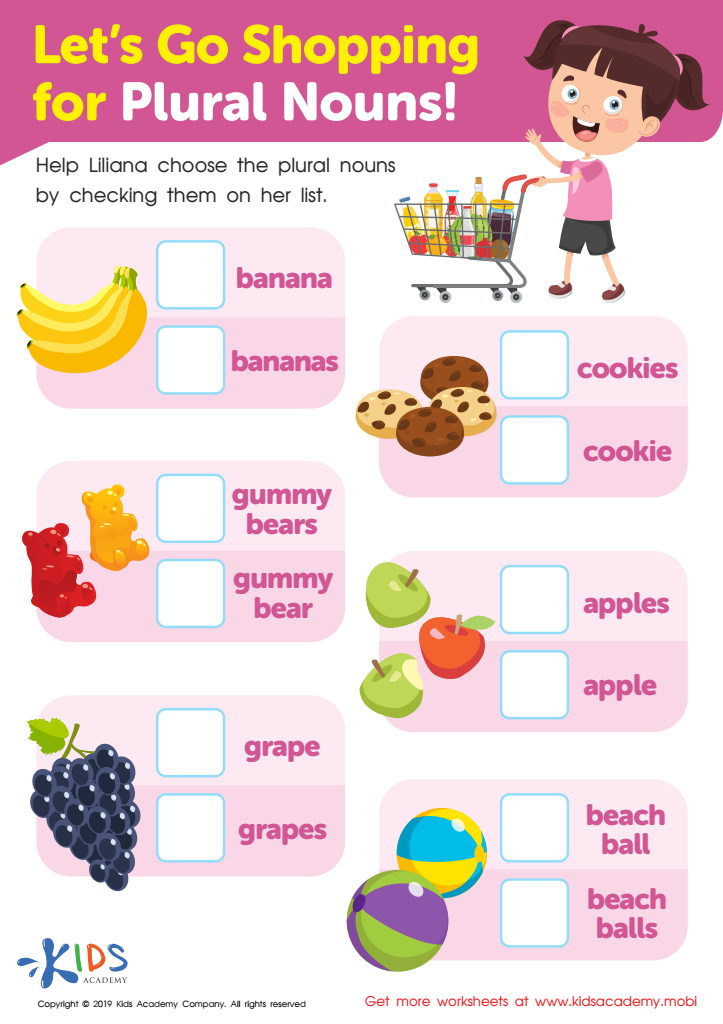

Let's Go Shopping for Plural Nouns! Worksheet
Vocabulary enhancement for children ages 3-4 is crucial because it lays the foundation for effective communication and lifelong learning. During these early years, young minds are like sponges, eagerly soaking up new words and concepts. By focusing on vocabulary development, parents and teachers can help children express their thoughts, feelings, and ideas more clearly and creatively. This not only boosts self-confidence but also encourages social interactions with peers, fostering essential interpersonal skills.
Moreover, a strong vocabulary is linked to better reading comprehension and academic success later on. Children who can understand and use a rich array of words are better equipped to tackle complex texts as they progress through school. Simple and engaging activities like reading aloud, singing nursery rhymes, and playing word games can significantly enhance vocabulary in a fun way.
Parents and teachers also play a pivotal role in modeling language use, providing a language-rich environment, and actively expanding children's vocabulary through discussions. When children learn new words and their meanings, they unlock new ways to understand the world around them. By prioritizing vocabulary enhancement during these formative years, adults can help nurture more articulate, curious, and confident learners ready for future challenges.
 Assign to My Students
Assign to My Students











